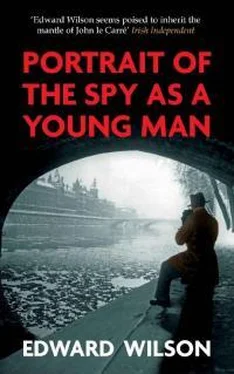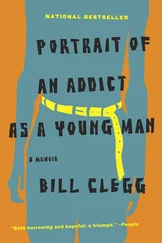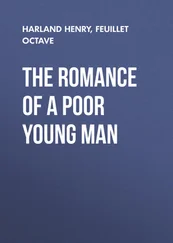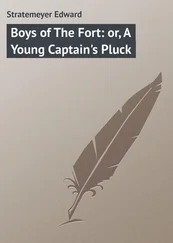‘Any idea what happened to him after that?’
‘Haven’t a clue. Probably survived to a ripe old age surrounded by riches and those naive enough to love him.’
Leanna looked at her notes. ‘We seem to have taken a detour from September 1944.’
‘Ah,’ Catesby began shuffling papers on his desk. ‘Here it is. I kept a copy. Baker Street finally pulled their finger out by the end of September and I got this: Personal for William Catesby [Jacques Dubois] from Squadron Officer Vera Atkins. Return to UK as soon as possible as no further work for you in France. Bring with you all British non-commissioned personnel, codebooks, classified information, lists of agents, W/T crystals and your personal weapon. And that as they say was that.’
‘That smile looks sly.’
‘During the four weeks I was cooling my heels waiting for my repatriation orders, one very interesting thing happened. Remember Ewan, the Intelligence Corps officer who was an important figure in the art world?’
‘The one who took you to the Café Royal to sip absinthe?’
‘That’s the one. As France had been liberated, his job was tracking down works of art that had been looted by the Germans. Ewan sent me a message asking if I “would be so kind” as to send him a list of confiscations from the Limousin. I set about the job with vigour and passion, but the list I sent him wasn’t long and was largely composed of ceramics. He sent me another message asking if I could track down a “human work of art” and make sure that he was safe. The artist in question was a writer who had been active in the Resistance. He and his partner had been forced to flee Paris and had walked to the south of France. Ewan suggested that they might be in the Luberon.’ Catesby smiled. ‘Through my Maquis networks I discovered they were in the village of Roussillon. The local Maquisards knew it was him because the writer spoke French with a strong Irish accent. Do you see where this is going?’
Leanna nodded.
‘And if you pass it on to one of your Eng Lit colleagues at the uni and they write an article about it, I want to be fully acknowledged.’
‘I promise.’
‘Well, I went to Rousillon in the company of a grizzled Maquis leader, a former legionnaire, who had spent a couple of years in Indochina. By the way, Rousillon, with its ochre-coloured buildings, red cliffs, lush green pine trees and Provençal sky, is an artist’s palette. I can see why the writer and his partner were drawn to it. It was, unfortunately, a brief visit. Neither the ex-legionnaire nor Samuel Beckett were good at small talk – and he did speak French with a pronounced Irish accent. We were assured they were safe and sound. I offered to convey any messages they wished to send to Paris, London or Ireland, but they declined. The ex-legionnaire finally stirred and said, “I suppose we’d better di di .” For some reason the words attracted Beckett’s interest and he said, “What do you mean by di di ?” The ex-legionnaire huffed. “Only something I picked up in Indochina. Di di is Vietnamese for ‘go go’. We used to shout it at the native troops all the time to get them off their arses.” “How interesting,” said Beckett.’
‘So, both the main characters in Waiting for Godot , Didi and Gogo, translate as “go go”.’
‘Exactly.’
‘And they don’t go anywhere. Very impressive. I hope you are proud of your contribution to the world of literature.’
‘It was the ex-legionnaire. I was only a bit player. But I sometimes wish I had become an Eng Lit teacher instead of a spy.’
‘The undergrads would have loved you.’
‘No, nothing so grand as a university. I would have wanted to teach poor ragamuffins like myself and my pals from Roman Hill were in the 1930s. Or maybe at Lowestoft College where you got straight As for your A levels.’
‘You exaggerate, Granddad, you know it was two As and a B.’
‘I was impressed by the staff and students. That college changed a lot of lives. And how many lives did I change as a spy?’
‘You helped prevent a nuclear holocaust in 1962.’
‘The Cuban missile crisis? I was only a messenger boy. Why are you laughing, gal?’
‘Because you’ve started speaking with a Suffolk accent again. You’re like Ed Sheeran; you’ve never lost your roots. And neither will I. You’ve taught me to love this place.’
As Leanna said those words her voice suddenly had the same vowels and cadences as the kids she had known in the state secondary and at the college. A Suffolk accent coming out of a beautiful brown face made Catesby’s eyes fill with tears.
‘What’s wrong?’
Catesby laughed. ‘My hid seems to be sloightly on th’ huh.’
‘Now you’re overdoing it.’
‘You’re right.’
Leanna glanced at her notes again. ‘Did you ever meet Georges Guingouin again?’
‘Only once. I was invited to France for a ceremony commemorating the fiftieth anniversary of the Battle of Mont Gargan. We only spoke briefly as Guingouin was the centre of attention, but he introduced me to his wife and daughters – none of whom were going to refer to the awful things that happened to Guingouin after the war. I talked to Henriette, his wife, for some time without mentioning the elephant in the room. The conversation was largely about their careers as teachers. Kind of ironic that the greatest hero of the Resistance, one promoted to the dizzying heights of commander of the Légion d’honneur , should have ended up a humble schoolteacher in la France profonde .’
‘Exactly what you would have liked to have been in deepest darkest Suffolk.’
‘But Guingouin was mayor of Limoges for two years after the war. He only returned to teaching after being voted out of office in 1947. After that, his relationship with the Party worsened until he was expelled in 1952.’
‘Why was he expelled?’
‘The Party leadership detested Guingouin for refusing to submit to Party discipline. I suppose you could say he was too bolshie to be a Bolshie. They also accused him of being a Titoist, which, at the time, was worse than being a capitalist and almost as bad as being a Trotskyite. The Party rehabilitated him in 1998 and wrote Guingouin a letter apologising for everything that had happened to him.’
‘Did he rejoin?’
‘No, he said he had reached the age of sérénité and no longer cared.’
‘Unlike you.’
‘Serenity is for dead people, but to be fair to Guingouin, he experienced something in the 1950s worse than anything the Party ever meted out to him. It was the turn of the right and the former collabos to get their revenge.’ Catesby looked away. His eyes were not full of serenity.
‘What happened?’
‘The Vichyiste collaborating cowards and bastards were waiting to get him and they pounced on Christmas Eve in 1953. He was arrested for complicity to murder and taken before a judge at Tulle. The charges related to the execution of two peasants thought to be informers. The deaths were ordered by a Maquis leader nominally under Guingouin’s command, but Georges had known nothing about it. The judge refused bail and ordered Guingouin to be held in custody awaiting trial. The trumped-up charges were a conspiracy concocted by senior police officers who had been outwitted by Guingouin during the war. He was taken to a prison in Brive where he was beaten unconscious by warders. The prison authorities, now fearing for Guingouin’s life, had him transferred to a prison in Toulouse where he arrived in a terrible mental and physical state. After a newspaper reported a suicide attempt, a more sympathetic judge ordered a complete mental and physical assessment of his health. Guingouin was sent to a psychiatric hospital where he recovered enough to be sent back to prison. He was freed on bail three months later – but wasn’t completely cleared of all charges until five years afterwards. Guingouin calmly went back to teaching. Despite the trauma he had been through, he taught for ten more years before retiring.’ Catesby shook his head and then looked at his granddaughter. ‘Compare what happened to Guingouin with what happened to the lying traitor René Hardy.’
Читать дальше












